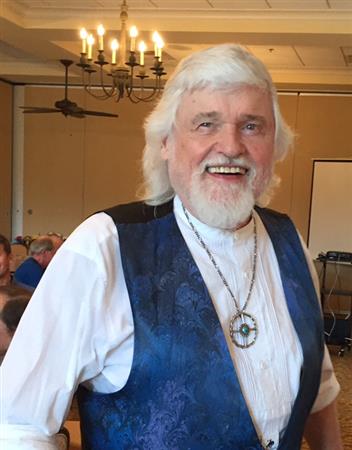
RACISM IN AMERICA: STILL A LETHAL AND SHAMEFUL REALITY
Make sure to click the "read more" to read Fred's article !
George Floyd, an unarmed, handcuffed Black American in police custody has been killed (I believe murdered) by police in Minneapolis, Minnesota. Most of us have suffered through the experience of seeing this gruesome video. We hear a fellow human being crying "I can't breathe" and calling out to his deceased mother, while an officer continues to press his knee against George's neck - reportedly for close to three minutes after he has ceased to have a pulse. And all this takes place when bystanders are pleading for the officers to recognize and respond to George's inability to breathe.
Watching the video and later listening to black men on television weeping and sharing their own experiences, their own grief, fear and anger, tears ran down my cheeks. I wept for George Floyd, for all of us, for America, and for the centuries of mindless racism. It has also been painful listening to the soul-wrenching grief of friends and family members of Mr. Floyd. I am troubled, too, when feeling at times helpless, when processing and confronting my own learned racism, and when feeling my efforts to oppose racism appear to have done little or nothing to change anything.
Over the years I have talked with a few black American fathers here in Carrollton, who have painfully shared fearing for their own safety and having the compelling need to talk to their children about how dangerous it can be to be a black person in America. Of course, mothers, especially black and brown mothers, have had similar talks with their children. The day I started writing this letter, I talked with a young black man who works at a store where I shop. He was uncharacteristically subdued and I asked him why. "They keep
killing us," he said. "Three of us in weeks - one right here in Georgia - just jogging. It's always been like this." I had difficulty knowing just what to say. "I want to apologize to you," I responded, "apologize for white America. I'm old enough to be your grandfather. I'm sorry. Let's not give up. Please don't give up."
Almost sixty years ago (1962), another ministerial student and I at a private Baptist University in Florida wrote a resolution calling for the school to integrate. After the Ministerial Association approved the resolution, the story of our stand appeared in newspapers around the country. In response, the University President and the professors in the Department of Religion said nothing to me, with the exception of Dr. Ed. Holmes, who placed his hand on my shoulder and said, "I want you to know I'm proud of you." Not long after that I was summoned to an office where I was confronted by a red-faced, angry Dean of the Chapel who pointed at me and yelled: "You have destroyed a great University!" I believe much progress has been made since then, and yet, much, unfortunately, has stayed the same.
One of the most troubling books in my home library is Without Sanctuary, Lynching Photography in America. Congressman John Lewis, in the Foreword, writes:
Many people today, despite the evidence, will not believe - don't want to believe -
that such atrocities happened in America not so long ago. These photographs
bear witness to the hangings, burnings, castrations, and torture of an American
holocaust. . . . It is my hope that Without Sanctuary will inspire us, the living
. . . to be more compassionate, loving, and caring.
I recommend the book to persons wanting to understand more deeply the black experience in America, and particularly my white brothers and sisters who lack empathy for those protesting the killings, or who lack empathy for their fellow Americans who are sick and tired of being sick and tired.
I offer here no promising solutions to the persistence of racism or to the long list of daunting problems now facing all of us. I write because it's more painful to remain a silent witness to the violence and despair taking place daily in our lives. In the evening of my long life, I want to do something to bring some hope, joy, and love to this troubled but worth-loving world and fortunately my wife, Anne, joins me in this. I have felt, at times, discouraged, even defeated. There have been moments when I wish I didn't care so much.
The Buddhist monk Thich Nhat Hanh coined the term "interbeing" to describe how everything, including all of us, are interconnected and interrelated. For example, we may think of ourselves as separate human beings, but we're actually all in this together. And we are truly human to the degree we identify widely with one another and affirm one another's existence.
I find it helpful, as a psychotherapist and person, to imagine we are not only ourselves but are also the others who populate our world, even when it can be uncomfortable or threatening to do so. It is helpful to walk around in one another's shoes, so to speak. Identifying widely with others is a way of deepening and expanding our empathic connections with others, even those we fear. For example, we can imagine we are George Floyd as he cries out, "I can't breathe." We are the police who, betraying their oath to protect and serve, take from him his very life. We are the heart-broken friends and family of George Floyd and countless others who have tragically died. We are the peaceful protestors and also those exploding with rage and violating the law. We are the dedicated officers risking their lives to enforce the law and protect our communities. We are persons of all races overwhelmed with grief and terror as they witness their cities being looted and burned. We are the social justice advocates who, though discouraged, remain committed to creating an America "with liberty and justice for all." We are the correspondents and camera crews revealing in real time part of the soul of America we often deny or ignore. We are the elected and appointed officials in our country and in our cities and towns choosing to stand up and speak or remain silent in the face of injustice. As Americans, we are all of this - and more.
Seeking to see things from the point of view of others enriches our humanity and helps us to be a source of healing, hope, and reconciliation. Be clear: identifying with others as part of our human family does not prevent us from holding those accountable who break the law, destroy property, and violate the rights of others. It can help us, however, to be persons embodying (always imperfectly!) the very peace, justice, caring, and respect we hope may become the shared values and goals of our country and communities.
How you and I - all of us - choose to respond to the full reality of who we are as Americans testifies to how human we are and what we believe America can be.
We need to change, to face who we are, and, together, make palpably real the democratic ideals we espouse. As Margaret Wheatley writes in So Far From Home, Lost and Found in Our Brave New World, there will be no real change until, "we open ourselves to the world as it is, open to the enormous tragedy of our time."
Fred Richards
_
